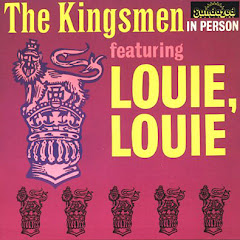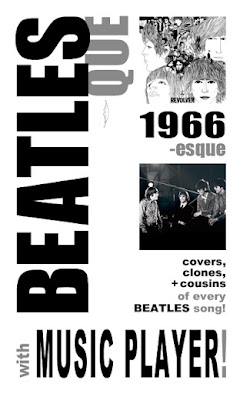C H A P T E R L I N K S :
• 1- Fake Narrative
• 2- Streaming
• 3- It's The Economy, Stupid.
• 4- Cutting Costs
• 5-
• 6- Fans vs. Trolls
• 7- How to Conclude and Continue, dept.
Here’s the quick version.
Narrative:
"The Acolyte was canceled because of hostile fan reaction."
Reality:
No. This is incorrect twice.
1) The Acolyte was a miniseries which concluded its main story.
It had the potential to continue but, like many other shows in 2024, it was not renewed simply because of studio financial issues.
2) Trolls are not fans.
The Media, now predominately owned by conservative corporations, has a consistent record of failing to distinguish actual fans of a franchise from trolls: a fan can love their franchise while having constructive critiques about it; a troll is a hostile saboteur who attacks a franchise solely to discredit it. By (intentionally or lazily) conflating an enemy as an ally, the Media uses the troll to validate a false narrative that discredits a franchise and its fans.
Here’s the fuller version.
Studios wanted to make a lot of money with streaming. At first they did and then they didn’t.
Netflix proved streaming original content online could be profitable, and by 2018 every studio fast-tracked their own: DC Universe, Disney+, Hulu, HBO Max (later Max), CBS All Access (later Paramount+), Apple TV, Amazon Prime, Peacock, Starz, BBC America, BritBox, etc.
During the lockdown period of 2020 into 2021, they had a captive audience and subscription profits were record highs. Execs began frothing franchise, with each network investing heavily into production of ambitious new shows and miniseries to meet demand, regardless of expense.
1) The first problem was that this was asking too much, too fast.
For example, to expand the exclusive streaming content of Disney+, CEO Bob Iger wanted as many new STAR WARS and MCU films and shows as could be pumped out. But producers Kathleen Kennedy (Lucasfilm) and Kevin Fiege (Marvel Studios) valued quality above quantity, and continually had to course-correct their increased productions to maintain it.
Iger was the problem, Kennedy and Fiege kept fixing it. The sensible solution is to have a Kennedy or a Fiege in charge instead of an Iger: a professional who balances finance with quality production.
2) The second problem came when the studios stopped making profit.
After lockdown, people were no longer at home streaming anymore. This was followed by the Writers/Actors Strike (a good thing protecting creators’ rights) which halted the production pipeline. Meanwhile, greedy corporations wanted to maintain those high lockdown profits by price-gouging, from gas down to food, while also laying off massive amounts of employees. The public couldn't afford anything anymore, and streaming subscriptions began to drop.
The ethical stance for the Media would have been to stop vilifying the strikers (e.g., the L.A. Times), and start investigating the profiteers.
3) The third problem was studio bankruptcy.
By 2024 major studios like Warner and Paramount/Showtime were struggling to stay solvent now after streaming declines. Their first move was to cut costs, with the most expensive shows first for review.
For example, since 2018 Paramount+ had built its success from streaming new Star Trek shows, and had grand plans of more to come. But financial losses now caused them to reverse course: costly shows like Star Trek: Discovery and Star Trek: Lower Decks were ended abruptly after five successful years, Star Trek: Prodigy was syndicated directly to Netflix, and the intended Section 31 series became a standalone film. They let the four go to cautiously fund two more in the pipeline.
What happened to all the happy consumers?
The economy was generally sabotaged by corporate interests: from price-gouging to layoffs to evictions. Independent journalism outlets focused on this while the overwhelming majority of corporate-owned news agencies did not.>> Instead, corporate media manufactured Trend Story narratives that consistently blamed specific brands for their own misfortune without factoring in the general (and forced) economic decline.
"Trend journalism attains authority not through actual reporting but through the power of repetition. Said enough times, anything can be made to seem true. A trend declared in one publication sets off a chain reaction, as the rest of the media scramble to get the story, too.(...) And repetition became especially hard to avoid in the '80s, as the 'independent press' fell into a very few corporate hands."
- "Backlash: The Undeclared War Against American Women" (1991), by Susan Faludi
As the cost of gas and food went up, so did leisure items like book prices and movie tickets. When audiences could no longer afford any movie released after Lockdown ended, headline narratives attacked specific movie brands and genres with targeted blame: 'Pixar is failing', 'Star Wars is failing', 'Marvel is failing', 'Superheroes are failing'. But while department chains, restaurants, coffee, hardware, clothing, and discount stores were also struggling, there was no similar Trend Story narrative blame-wave on them such as 'Lattes are failing' or 'Nike is failing'.
This targeted narrative attack was also not used on business chains with similar losses as movie theaters such as Starbucks, Walgreens and CVS, or TJ Maxx, or even on movie genres such as Dramas, RomComs, Family, Sports, Racing, Military, or Action films.
(Note that the movie genres that get a pass are films grounded in normative mundanity instead of the fantastic. The exception to this is Horror, which can pump out countless failures per year without comment, but one SciFi or Superhero failure is used to condemn the entire genre.)
The Trend Story trend of the '80s begat the Spin Doctors and Talk Radio of the '90s, and the Fake News networks and Talking Points of the 2000s, and the memes and dis-info of social media on the internet presently. Journalism was replaced by tabloid fictions, that led into propaganda and disinformation. Trend narratives are designed to divide the public to conquer them with false information.
The owned Media also covered the studio struggles in an unbalanced way. The pattern is clear in a contrast between coverage of two studios: Disney and Warner.
1) After standing up to homophobic laws from the ultra-conservative Florida Governor, Disney (and by extension their properties Pixar, Lucasfilm, and Marvel) received much coverage emphasizing their losses in film and TV and even cruiselines, without the coverage relating these shortfalls to the overall economy impacting everyone financially.
2) By comparison, Warner Bros. Discovery had a track record of bad executive decisions and financial losses for the last decade that the Media didn’t focus on with such selective specificity or punitive slant.
The one studio was called to account for its principals or its fantasy (non-mundane) media, while the other studio was not called out for being poorly-managed. An impartial journalism, unowned by corporations, would have been more balanced/honest in their economic coverage.
The upshot is that struggling studios began cutting shows in 2024 to shore up their finances.
Some multi-season shows that were not renewed include Evil (CBS), Quantum Leap (NBC), Superman And Lois (CW), What We Do In The Shadows (FX), My Brilliant Friend (HBO), Girls5eva and Sweet Tooth (Netflix), Yellowstone and Halo (Paramount+), The Wheel Of Time (Apple TV), and Snowpiercer (TNT/AMC). New shows that were not renewed after one initial season include Renegade Nell (Disney+), Time Bandits and Constellation (Apple TV), Orphan Black: Echoes (AMC), and KAOS and Dead Boy Detectives (Netflix). Note how may of these are SciFi or Fantasy shows, with higher costs because of special sets, costumes, and effects.
These shows were canceled because of expense. The studios weren’t making enough revenue back for their investment during a financial crisis. They pared down and cut costs.
Notably, there was an absence of the Media targeting any of these axed shows as symptoms of a specific Trend Story pattern, such as 'Westerns are failing' or 'Female-led shows are failing'. To do so would have been obviously partial.
A major problem here is the current misuse of the word 'cancel'. It is often used by the Media, and hence the public, incorrectly or with a biased political slant.
1) Many shows wrap up at a certain point because it was their intended span.
For examples, American Born Chinese was a miniseries which fully adapted one book and stopped, while The Handmaid’s Tale was clear about being a six-season show in advance. To say that either was 'canceled' would be incorrect because the correct word to use is concluded.
And yet, biased trolls will crow that they got The Handmaid's Tale canceled, when (like everything in life) it had nothing to do with them. The show concludes on its own terms and they are irrelevent.
2) Where the word cancel is continuously misused politically is in response to protests.
For example, boycotts have been crucial in the Civil Rights Movement for fighting financial injustice (e.g., the Montgomery bus boycott led by Dr. King). Intelligent nations are doing the same when they use economic sanctions to punish dictator-nations instead of going to war. Progressive activists use boycotts to hurt oppressive corporations by lowering their profits. Always hurt evil in its money. When the corporate media generically labels any progressive boycott as 'cancel culture', it is as incorrect as it is clearly partisan.
The conservative-invented bounceblame buzzphrase 'cancel culture' would more accurately describe the regressive actions of conservatives themselves: e.g., book bans and censorship, school and library closures, purging voter rolls, gutting government agencies, outlawing diversity, etc. It also perfectly describes trolls trying to sabotage creative or political culture through doxing, downvoting, comments bullying, attack videos, mail spam, and malware. Put clearly, 'cancel culture' is a weasel phrase for demonizing protest or progress, used by guilty oppressors protecting their interests.
The solution is to use the word cancel correctly, and to boycott those who won't.
Why, specifically, was The Acolyte not renewed for continuance?
And why, specifically, was it targeted so hard by the hate fringe when so many unrenewed shows were not?
Disney (and subsidiary Hulu) looked at their finances and made the hard calls across the board about not renewing shows, whether it was Renegade Nell, Grown-ish, Reservation Dogs, Kindred, The Muppets Mayhem, or Willow. Note that there were no concocted headline narratives like 'Muppets are failing' or 'Native Americans are failing' in response these business decisions.
STAR WARS is a sure thing for popularity, but it is expensive. Disney chose not to make new STAR WARS film trilogies or standalones from name creators such as Guillermo del Toro, Ryan Johnson, Kevin Fiege, David Benioff and D.B. Weiss, Damon Lindelof, Patty Jenkins, Taiki Waititi, and Zak Snyder. These decisions came down purely to cost (Iger) or creative (Kennedy) considerations. If the Media or trolls had pinned these practical decisions on 'fan backlash' or 'DEI casting', it would only expose their own ignorance or motives.
The Acolyte was a contained miniseries with enough seeds for a continuance, like Kenobi or The Book Of Boba Fett before it, or Skeleton Crew after it. (Everyone should be reminded that STAR WARS (1977) was a self-contained film, with seeds for a follow-up, when it came out also. That worked out so well that it earned a retroactive chapter number and subtitle.) Faced with continuing Ahsoka and The Acolyte, Disney cut costs by choosing the former. This made practical sense, in that Ahsoka Tano is a fan favorite in various SW projects since 2008 with more stories ahead of her, and The Acolyte is a standalone miniseries that told its intended story to fruition. In other words... it concluded. The real story here should be that Disney continued to fund another expensive SW series when they could have done neither.
Instead, the fake story is trumpeted: "The Acolyte was canceled because 'fans' hated it." This agitprop absolutism falls apart easily upon examination.
1) The miniseries wasn’t extended after its conclusion. The studio hedged their bets on the popular ongoing character instead.
2) Define fans. What qualifies marginal complainers as a majority to be termed as fandom itself, and what is it then that these 'fans' are supposed to hate? With its deliberate vagueness, the media would have you believe that SW fans are white male bigots who hate women and complexions.
"You keep using that word. I do not think it means what you think it means."
– Inigo Montoya
So let's define what the Media will not.
A fan is a supporter of a cultural expression, and finds common ground with others who care as much. Fandom is inclusive and pluralistic, allowing for multiple points of view, healthy debate, and constructive critiques about how to improve what they all care for.
(see also: democracy)
A troll is the hate fringe, whose common denominator is hostility and aggression. Trolldom is exclusionary and self-interested, allowing only for strict dogma, no debate, and negative assaults against what they fear or don't understand.
(see also: fascism)
"The height of stupidity is most clearly demonstrated by the individual who ridicules something he knows nothing about."
- Albert Einstein
A fan is part of a shared positive movement and a troll is a negative thug outside of it.
A fan knows the positive point of their passion: Sports are fun, Music is exciting, Reading opens the mind. They get that Star Trek is about infinite diversity in infinite combinations, that STAR WARS is a progressive tale of the Allies vs. Space Nazis, that The Doctor is an alien who can turn into any form of human, that Tolkien defined Galadriel as an amazon in her youth. A troll looks through the mirror darkly, seeing Star Trek as ship battles helmed by men, or STAR WARS as a shooter game for bros, or that The Doctor should only become white men, or that Sauron is a legitimate political party. A troll plays themself by having no clue what creativity, human range, or civilization are about.
(see also: corporate media)
A fan would appreciate talent and craft, and will always embrace change and possibility. A troll just wants to see the world burn.
"Those who don't build must burn. It's as old as history and juvenile delinquents."
- 'Fahrenheit 451' (1953), by Ray Bradbury
A troll is a bigot, a sexist, a zealot, a Fundamentalist, a Klansman, a Brownshirt, an orc in Mordor. Trolls are not just half-ass, they are the ass whole.
Trolls are bullies who sew hate and distrust.>>>>>
This is why it is obvious to any thinking person that only troll saboteurs would launch a hate campaign against Amandla Stenberg for helming a series.> Or Daisy Ridley. Or Kelly Marie Tran. Or Moses Ingram. Or Morfydd Clark. Or Sonequa Martin-Green. Or Jodie Whittaker. Or the all-female Ghostbusters. Or THE MARVELS. Or She-Hulk. Or the other Silver Surfer. Or Storm Reid. Or Halle Bailey. Or Lizzo. Or Rachel Zegler. Or Dominique Thorne. Or Kathleen Kennedy. Or Greta Thunberg. Or Kamala Harris. Or AOC. Hey, it's a pattern. Where's a journalist to investigate?
And only a propaganda media would deliberately allow them to without comment.
(see also: incel, useful idiot, Russian bot)
"The lowest form of popular culture - lack of information, misinformation, disinformation, and a contempt for the truth or the reality of most people's lives - has overrun real journalism."
- Carl Bernstein
There's an absolute difference between fans and trolls. And between actual journalists and paid hacks.>>>
So again, using repetition to deprogram the programming, a fan is the agent of a positive community. A troll is a mole who infiltrates a positive movement for the sake of negative oppressors. A fan is a civil realm, a troll is the Trojan Horse.
(see also: kapo, scab, infiltrator, traitor)
For all of their barking, the wailing hate from Troll dogs (and their owners) just reveals their fear. They fear that reality exceeds the limits of their sad yard. But they are just dumb noise, a tail wagging an idiot.
"And I went down to the demonstration / To get my fair share of abuse."
- The Rolling Stones
For every positive action there is a negative reactionary. A fan is in essence an activist and a troll is a reactionary. In precise parallel, trolls are like the thugs routinely sent in (by power) to attack the protest march. Activists support the good, thugs bring the violence, the Media blurs the responsibility under the trigger word 'riot', a time-tested ploy to obscure the difference between the just and the injust. (other weasel words: unrest, controversy, disruptive, radical) By conflating an enemy as an ally, the Media uses the troll to validate a false narrative that discredits a franchise and its fans. (Or activism, or a movement, or progress.)
What connects corporate media to trolls? Fear of progress.
"Whatever it is, I'm against it!"
- Professor Quincy Adams Wagstaff>
If the trolls are the weaponizing of demonization, then the Media converts this into the weaponizing of exploitation. As shown so clearly on Andor, the shocktroopers assail the protestors on Ghorman, and the Ministry Of Enlightenment sells this oppression as liberation to the public.>
The Media rotely typecasts the status quo as stasis. As the policy brochure for their corporate owners (and for maintaining capitalism over democracy), CorpMedia™ is consistently skeptical/adversarial in its target narratives to any progress that would curtail their overlords' oppression, whether it's unions, strikes, protest marches, boycotts, populist policies, solar power, a shorter work schedule, remote working, or comfy work clothing. This extends to popular culture too. Music, movies, books, and comics are all fine as lucrative entertainment until they get mouthy about the status quo. Then the batons come out. (Examples given: John Lennon, Sex Pistols, Public Enemy; STRANGE VICTORY, THE SALT OF THE EARTH, BARBIE; "Ann Frank: The Diary Of A Young Girl", "Farenheit 451", "The Satanic Verses"; EC Comics, "Watchmen", "Maus".)
"Oh, make me over, I'm all I wanna be /
A walking study in demonology."
- Hole
As Campbell made clear in "The Hero With A Thousand Faces" (1949), humans channel their common experiences into parables for sharing understanding. Every form of writing/art/music is an equally valid form of expression, whether it is literally descriptive or poetic or surreal. While all forms of stories are imaginative, some are more intensified: stories that go beyond the norms of an era or outlook to imagine another way of being, of seeing, of becoming, are dangerous to oppression because they envision a life that is wider and probably better. Hope, change, possibility. This is why genres like Science Fiction, Fantasy, and Speculative Fiction are attacked/dismissed by rote in general. (Magic Realism and Folklore get a pass for seeming more grounded while poetic.) Not because they are 'juvenile entertainment' or 'unrealistic daydreaming' or 'light escapism', but because they are actually maturity uncoralled, outlook incited, spirits unleashed. Because they are freedom in action.
Satires like "Gulliver's Travels", "1984", "A Clockwork Orange", and "The Handmaid's Tale" used alternative allegory to roast human folly in the real world. Inherently, by challenging ignorance and abuse and championing intelligence and activism, SciFi is political. Star Trek is literally an antidote prescribing a humane future. STAR WARS is inclusive populism pushing back against dictatorship, as is "The Lord Of The Rings" and "Watership Down" and Pink Floyd's THE WALL and "Fear Of A Black Planet" and The Prisoner and Severance.
All STAR WARS tales are cautionary allegories and rallying cries. The evil that the Rebels fight is a pyramid heirarchy: the powerful and corrupt at the top (Palpatine), the brutal thug force in the middle (Imperials), and the dupes at the bottom (kapos, cowards, fools). This is the pattern of progress versus regress in human history. The downtrodden have to contest the neglect of, 1), the powerful [the Rich, the rulers, clerics]; 2), their overseers and hangmen [military, cops, media]; and 3), their support from mass fools [hicks, selfish, haters]. In exact parallel, the aware people of the real world have to combat the Selfish, the Agressive, and the Stupid. Every STAR WARS story argues that inclusion and unity is the light to progress, and that selfishness and cruelty is the abyss. Whenever the negative forces of the world take issue with that, they only expose what is wrong with them.
When the people stand up, the thugs try to knock them down. Daisy Ridley and Amandla Stenberg, by their very being, empower everyone that oppressors want to keep down. Every true STAR WARS fan supports them (is them) and stands against the negative forces with their awareness.
"Think / It ain't illegal yet!"
- George Clinton
Who is the messenger which broadcasts this hate fringe negativity worldwide?
Let's define the term Media more clearly. Since the first printing press, mass circulated pamphlets were used to enlighten (journalism) or gossip (tabloid) or assassinate (propaganda). And then newspapers, then television, and then the internet extended these patterns. Media means mediums, not mediate. It's up to attentive people to remediate the mediators, to sort the difference between facts, rumors, and lies in mass media. Look to the motives and methods of the makers; are they upholding factual truth, or shilling scandel, or hammering hate speech? The practice of Trend Narratives is tabloids pretending to be journalism at least, and pushing deliberate propaganda at worst.
Journalists tell the evidence but hacks sell an outlook. The flacks of corporate media will always hawk a normative status quo that reinforces control through repetition of tradition (suburbia, buying things, rich white men) and scorns any unsettling social movement that disrupts that (underground culture, populist activism, the foreign). Swipe Right.
"There's a brand new dance... that people from bad homes do again and again /
They do it over there but we don't do it here."
- David Bowie
Trolls are the Hate Choir, the corporate Media is the conductor. (And repressive Power is the composer.)
All of this boils down to weaponizing hate for power.
"Hatred is the coward's revenge for being intimidated."
- George Bernard Shaw
Both the haters and the owned media demonize difference. The common denominator of the complaining dominators is control. Haters want to mediate your lifestyle, the power structure wants to mediate your life. The forces of hate -trolls, incels, thugs, zealots- try to grind down any aspect of reality that exceeds their limits of imagination. The forces of control -the media, the government and judiciary, oligarchs- assassinate any progress that exceeds their limits of domination. Swipe Left.
Haters reduce the internet to an echo chamber of idiots. The Media reduces journalism to pimping false conflict for clicks.
If all you have is hate, what good are you?
Let's spell it out for the crap-tappers and bribed scribes: the only word for demonizing diversity is bigot. And no amount of euphemisms/denial/brainwashing can ever validate that evil.
The so-called 'backlash' to The Acolyte boils down to two biased forces colluding: the corporate Media selectively targeting certain politically impactful brands (Disney/Marvel/Star Wars/Pixar) and non-normative genres (SciFi, Fantasy, Heroes), while trolls consistently target women and skin color. HackFlacks pimping BratBros for social control.
The accurate narrative is "Popular Progress attacked by extremist bigots, and supported by Propaganda."
and Continue, dept.: ____
Great shows are made but some get canceled before thay can conclude. There is a strategy in play now to solve this.
Let’s start with an example of what went wrong. The success of the Game Of Thrones TV series (2011-'19) set many trends into motion: serial storytelling, cinematic craft with massive budgets, gritty Fantasy, beards. And also book franchising. Every studio wanted the same success of optioning a book series and rolling in the money.
What they forgot was that HBO was adapting a six-book series across eight seasons. This led to the American Gods debacle. AMC optioned the classic 2001 book, and in 2017 Bryan Fuller made an acclaimed, popular first season. It should have concluded its remaining half with a second, but the studio fired Fuller for costs, spun their wheels through two more meaningless filler seasons, and canceled it without a conclusion.
Did AMC think they were going to make one book last for five to seven seasons? Granted, The Handmaid’s Tale extended one book across six, but it's an exception: the creators maintained course staying true to the themes and possibilities of the book. Without creative control, the center will not hold.
The pattern is that studios throw everything on a sure bet, but pull the plug when they start to lose. Bold strut, clay feet. Fans lose their show, and then lose their incentive to invest time in new shows that might be pulled. It's a loop of loss.
Now showrunners have two ways to deal with this. The lesson is lessen.
1) First, get in get out.
Adapt a book faithfully in the time it needs and then stop. It can be a limited miniseries: Sharp Objects, Jonathan Strange And Mr. Norrell, American Born Chinese, The Queen’s Gambit, Station Eleven, Maid, A Gentleman In Moscow.
It can be one season or two. Starz adapted each of Gabaldon’s "Outlander" books into a season each. Netflix’s plan is to adapt each of Patricia Highsmith’s five "The Talented Mr. Ripley" books, a season apiece. This is why Ripley season 1 (2024) is the entirety of the first book. Similarly, AMC has optioned all of Ann Rice’s books; they are adapting each Vampire book in sequence, for two seasons a book. The first, "Interview With The Vampire", concluded in 2024 after its allotted two seasons, with the second book to follow.
In Out.
2) Secondly, tell the whole story arc in a season.
There were too many great first-season shows in 2024 that didn’t get renewed: Renegade Nell, Time Bandits, Constellation, Dead Boy Detectives, Orphan Black: Echoes. And yet they were completely satisfying and worth the trip. Why? The showrunners treated the season like a miniseries, wrapping up the season's main story arc at the end (with enough seeds to continue, in case they were renewed). This avoids the common mistake of leaving too many unresolved threads across a season meant to be tied in future seasons. Nip it.
Both solutions treat a show now like a miniseries: tell the total story as if this all the time it will get. If the intended ongoing series is not renewed, at least it wrapped up its initial arc. The fans are left with (general) closure, and the run can be marketed later as a miniseries or standalone season or longform movie.
The Acolyte works by both solutions. It was a miniseries that concluded its story, but had enough seeds to continue if needed. It succeeded at exactly what it was designed to do. The only thing that prevented any more of that was finance, period. But it remains (like the limited productions Kenobi, Boba Fett, Andor, and Skeleton Crew), fully formed and intact, and always will.
Fans win, trolls lose. Jedi win, Sith lose.
© 2025; all text, research, and art graphics by Tym Stevens
See also:
• How STAR WARS Is Changing Everything!
• ANDOR, The New Revolution
• 2001: A SPACE ODYSSEY - Its Transcendent Influence on all Pop Culture, with Music Player!
• How SPAGHETTI WESTERNS Revolutionized Rock Music!, with 3 Music Players!
• TWIN PEAKS: Its Influence on 30 Years of Film, TV, and Music!, with 5 Music Players!
• LORD OF THE RINGS: The Rings Of Power ⬤ The One Rules All
• THE CANON 1: 50 Books That Created Modern Culture, with Music Player
• THE CANON 2: 50 More Books That Created Modern Pop Culture, with Music Player
• THE CANON 3: 50 Recent Books That Created Modern Culture, with Music Player
• The Real History of ROCK AND SOUL!: The Music Player Checklist




















































































































































No comments:
Post a Comment